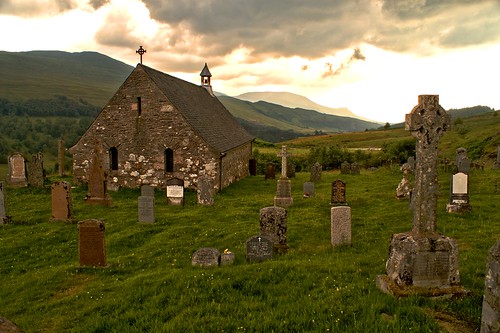Gentle readers,
This was sent to me and I felt that it needed a much wider readership than it may receive. Please read with and open mind and a prayerful heart. I have been contacted by more than 1500 American church "who want to go in a different direction" No longer is Scripture being held out to the churches and the membership. What do we do as pastors?An anti-Christian chapter in Western history is about to begin. But out of the ruins, a new vitality and integrity will rise.We are on the verge – within 10 years – of a major collapse of evangelical Christianity. This breakdown will follow the deterioration of the mainline Protestant world and it will fundamentally alter the religious and cultural environment in the West.
Within two generations, evangelicalism will be a house deserted of half its occupants. (Between 25 and 35 percent of Americans today are Evangelicals.) In the "Protestant" 20th century, Evangelicals flourished. But they will soon be living in a very secular and religiously antagonistic 21st century.
This collapse will herald the arrival of an anti-Christian chapter of the post-Christian West. Intolerance of Christianity will rise to levels many of us have not believed possible in our lifetimes, and public policy will become hostile toward evangelical Christianity, seeing it as the opponent of the common good.
Millions of Evangelicals will quit. Thousands of ministries will end. Christian media will be reduced, if not eliminated. Many Christian schools will go into rapid decline. I'm convinced the grace and mission of God will reach to the ends of the earth. But the end of evangelicalism as we know it is close.
Why is this going to happen?
1. Evangelicals have identified their movement with the culture war and with political conservatism. This will prove to be a very costly mistake. Evangelicals will increasingly be seen as a threat to cultural progress. Public leaders will consider us bad for America, bad for education, bad for children, and bad for society.
The evangelical investment in moral, social, and political issues has depleted our resources and exposed our weaknesses. Being against gay marriage and being rhetorically pro-life will not make up for the fact that massive majorities of Evangelicals can't articulate the Gospel with any coherence. We fell for the trap of believing in a cause more than a faith.
2. We Evangelicals have failed to pass on to our young people an orthodox form of faith that can take root and survive the secular onslaught. Ironically, the billions of dollars we've spent on youth ministers, Christian music, publishing, and media has produced a culture of young Christians who know next to nothing about their own faith except how they feel about it. Our young people have deep beliefs about the culture war, but do not know why they should obey scripture, the essentials of theology, or the experience of spiritual discipline and community. Coming generations of Christians are going to be monumentally ignorant and unprepared for culture-wide pressures.
3. There are three kinds of evangelical churches today: consumer-driven megachurches, dying churches, and new churches whose future is fragile. Denominations will shrink, even vanish, while fewer and fewer evangelical churches will survive and thrive.
4. Despite some very successful developments in the past 25 years, Christian education has not produced a product that can withstand the rising tide of secularism. Evangelicalism has used its educational system primarily to staff its own needs and talk to itself.
5. The confrontation between cultural secularism and the faith at the core of evangelical efforts to "do good" is rapidly approaching. We will soon see that the good Evangelicals want to do will be viewed as bad by so many, and much of that work will not be done. Look for ministries to take on a less and less distinctively Christian face in order to survive.
6. Even in areas where Evangelicals imagine themselves strong (like the Bible Belt), we will find a great inability to pass on to our children a vital evangelical confidence in the Bible and the importance of the faith.
7. The money will dry up.
What will be left?
•Expect evangelicalism to look more like the pragmatic, therapeutic, church-growth oriented megachurches that have defined success. Emphasis will shift from doctrine to relevance, motivation, and personal success – resulting in churches further compromised and weakened in their ability to pass on the faith.
•Two of the beneficiaries will be the Roman Catholic and Orthodox communions. Evangelicals have been entering these churches in recent decades and that trend will continue, with more efforts aimed at the "conversion" of Evangelicals to the Catholic and Orthodox traditions.
•A small band will work hard to rescue the movement from its demise through theological renewal. This is an attractive, innovative, and tireless community with outstanding media, publishing, and leadership development. Nonetheless, I believe the coming evangelical collapse will not result in a second reformation, though it may result in benefits for many churches and the beginnings of new churches.
•The emerging church will largely vanish from the evangelical landscape, becoming part of the small segment of progressive mainline Protestants that remain true to the liberal vision.
•Aggressively evangelistic fundamentalist churches will begin to disappear.
•Charismatic-Pentecostal Christianity will become the majority report in evangelicalism. Can this community withstand heresy, relativism, and confusion? To do so, it must make a priority of biblical authority, responsible leadership, and a reemergence of orthodoxy.
•Evangelicalism needs a "rescue mission" from the world Christian community. It is time for missionaries to come to America from Asia and Africa. Will they come? Will they be able to bring to our culture a more vital form of Christianity?
•Expect a fragmented response to the culture war. Some Evangelicals will work to create their own countercultures, rather than try to change the culture at large. Some will continue to see conservatism and Christianity through one lens and will engage the culture war much as before – a status quo the media will be all too happy to perpetuate. A significant number, however, may give up political engagement for a discipleship of deeper impact.
Is all of this a bad thing?
Evangelicalism doesn't need a bailout. Much of it needs a funeral. But what about what remains?
Is it a good thing that denominations are going to become largely irrelevant? Only if the networks that replace them are able to marshal resources, training, and vision to the mission field and into the planting and equipping of churches.
Is it a good thing that many marginal believers will depart? Possibly, if churches begin and continue the work of renewing serious church membership. We must change the conversation from the maintenance of traditional churches to developing new and culturally appropriate ones.
The ascendency of Charismatic-Pentecostal-influenced worship around the world can be a major positive for the evangelical movement if reformation can reach those churches and if it is joined with the calling, training, and mentoring of leaders. If American churches come under more of the influence of the movement of the Holy Spirit in Africa and Asia, this will be a good thing.
Will the evangelicalizing of Catholic and Orthodox communions be a good development? One can hope for greater unity and appreciation, but the history of these developments seems to be much more about a renewed vigor to "evangelize" Protestantism in the name of unity.
Will the coming collapse get Evangelicals past the pragmatism and shallowness that has brought about the loss of substance and power? Probably not. The purveyors of the evangelical circus will be in fine form, selling their wares as the promised solution to every church's problems. I expect the landscape of megachurch vacuity to be around for a very long time.
Will it shake lose the prosperity Gospel from its parasitical place on the evangelical body of Christ? Evidence from similar periods is not encouraging. American Christians seldom seem to be able to separate their theology from an overall idea of personal affluence and success.
The loss of their political clout may impel many Evangelicals to reconsider the wisdom of trying to create a "godly society." That doesn't mean they'll focus solely on saving souls, but the increasing concern will be how to keep secularism out of church, not stop it altogether. The integrity of the church as a countercultural movement with a message of "empire subversion" will increasingly replace a message of cultural and political entitlement.
Despite all of these challenges, it is impossible not to be hopeful. As one commenter has already said, "Christianity loves a crumbling empire."
We can rejoice that in the ruins, new forms of Christian vitality and ministry will be born. I expect to see a vital and growing house church movement. This cannot help but be good for an evangelicalism that has made buildings, numbers, and paid staff its drugs for half a century.
We need new evangelicalism that learns from the past and listens more carefully to what God says about being His people in the midst of a powerful, idolatrous culture.
I'm not a prophet. My view of evangelicalism is not authoritative or infallible. I am certainly wrong in some of these predictions. But is there anyone who is observing evangelicalism in these times who does not sense that the future of our movement holds many dangers and much potential?
• Michael Spencer is a writer and communicator living and working in a Christian community in Kentucky. He describes himself as "a postevangelical reformation Christian in search of a Jesus-shaped spirituality." This essay is adapted from a series on his blog, InternetMonk.com .










